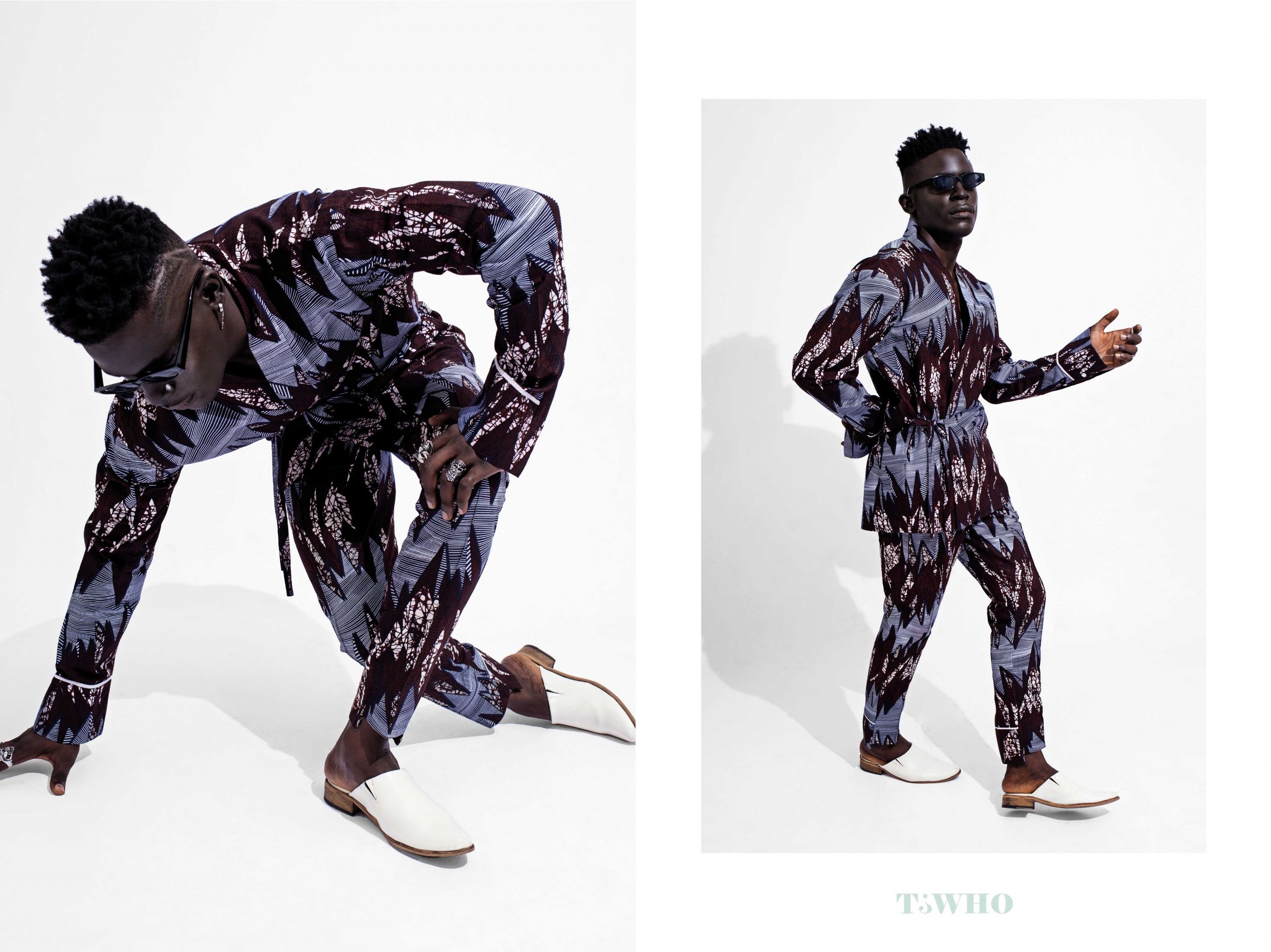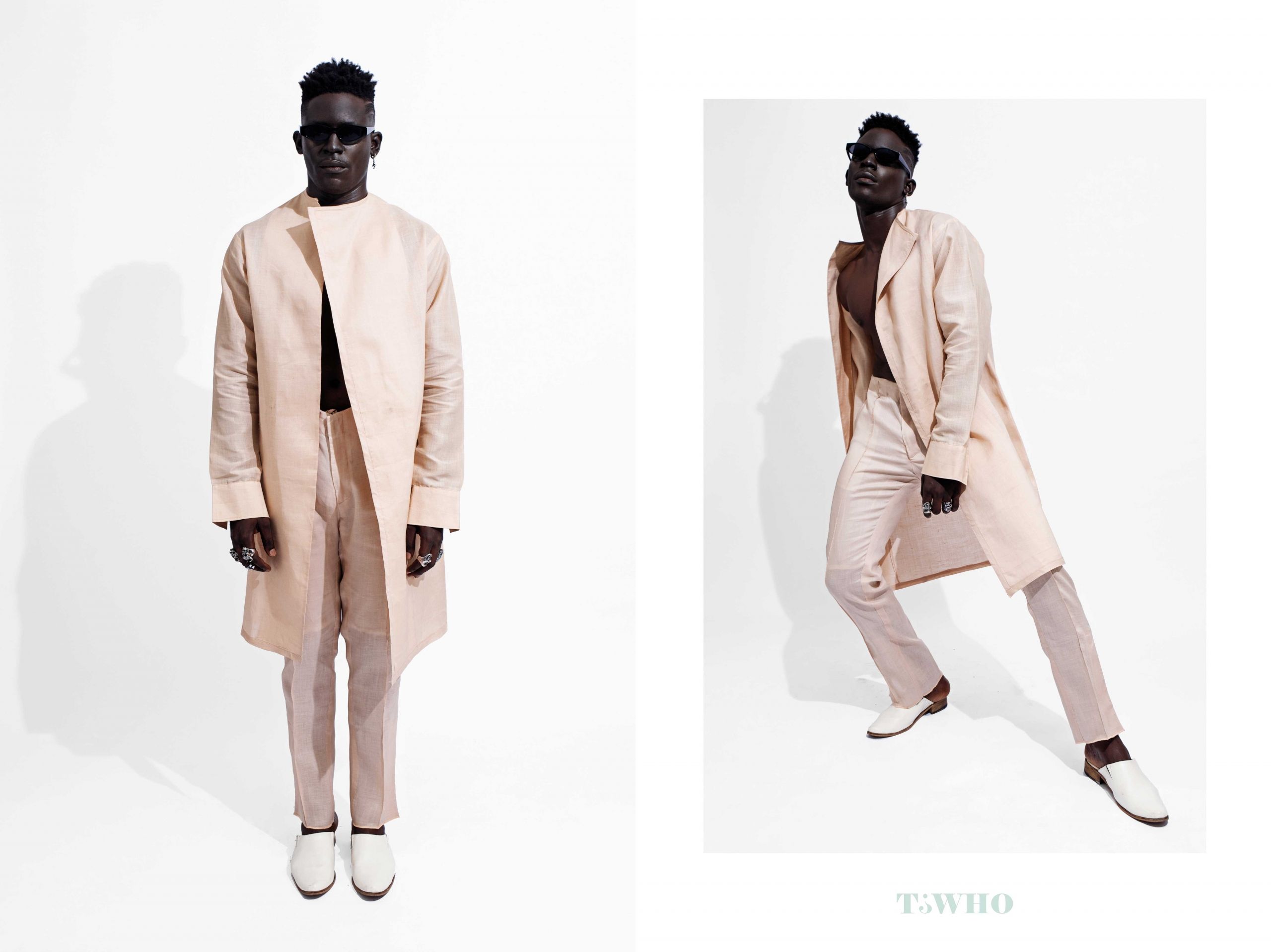TJWHO is a menswear fashion luxury brand based in Lagos, Nigeria. It was created in 2018 and is known for infusing cross cultural references with a modern twist. Head designer, Taju Ibrahim always keeps an African perspective in mind when constructing garments.
His work and designs have been seen on musicians like Burna Boy, Ladipoe and Lucky Daye and his collections have been featured during Arise Fashion Week and Lagos Fashion Week.
He represents a group of formidable and young Nigerian designers that have established successful self-made fashion brands with cutting edge and unique designs. TJWHO is carving a lane and is an example of the possibilities in the African fashion industry.
Bubblegum Club sits down with Ibrahim to talk about the brand and Nigeria’s growing fashion scene.
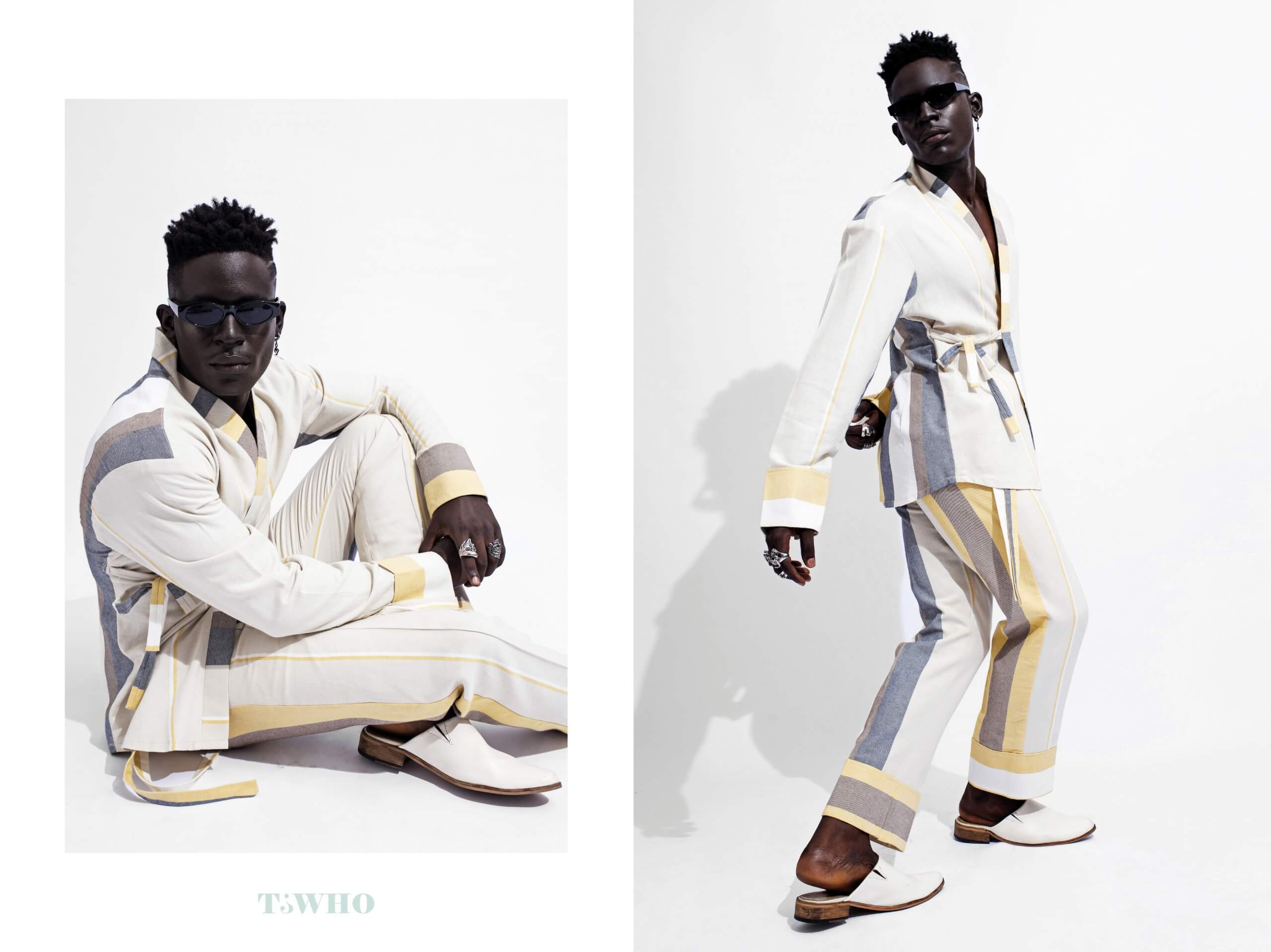
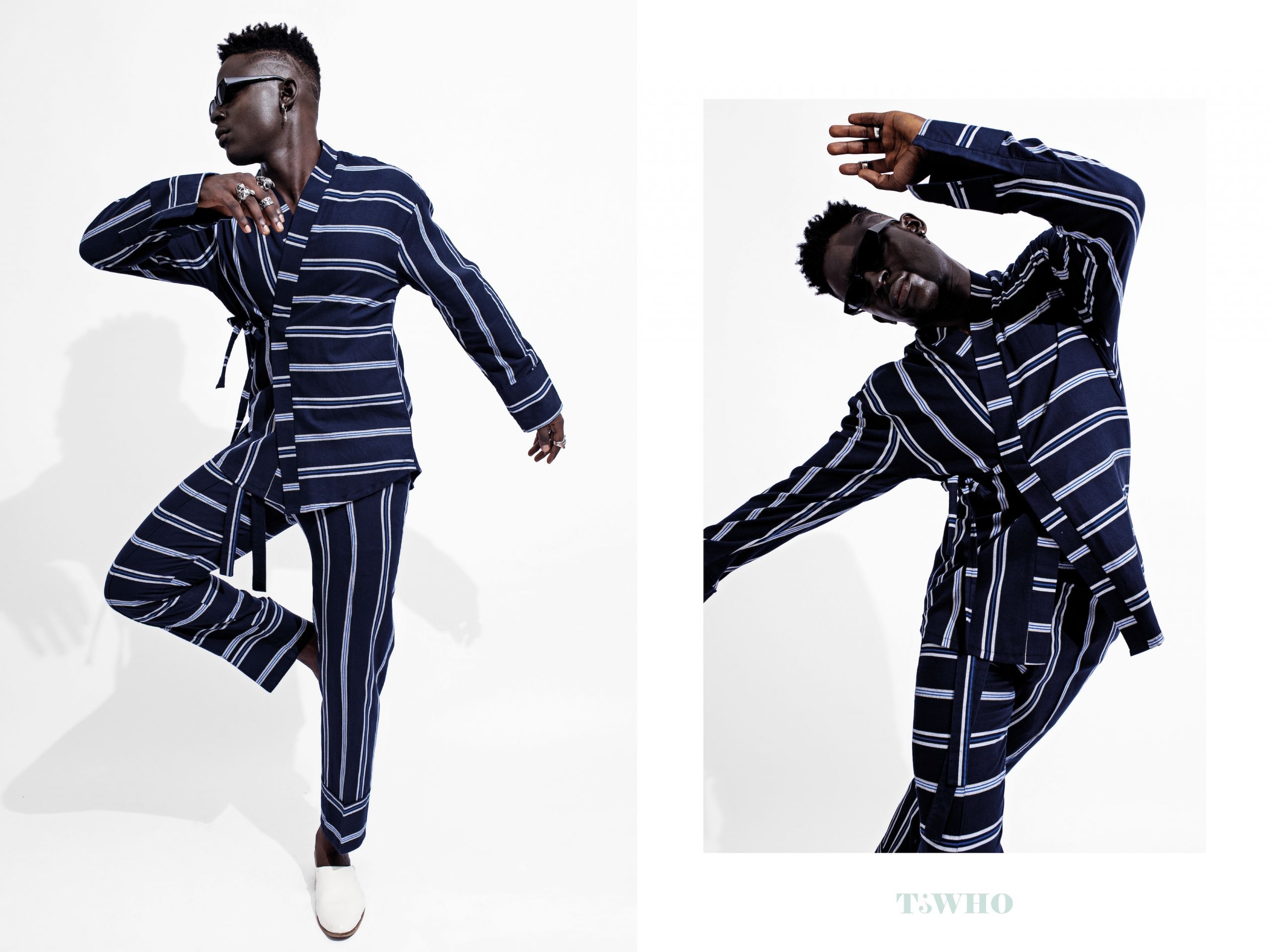
Lee Nxumalo: What was your first introduction to fashion?
Taju Ibrahim: It was movies and watching music videos when I was younger. I grew up on Star Wars movies, anime, MTV, TRL, and Channel O. I would watch my favourite artists, celebrities and how they portray themselves in the limelight. I was very intrigued by the persona and how fashion brought out the best version of them.
My love for fashion goes back as far as high school. I think we made it a point to compete amongst ourselves when we were in school with things like ‘Best Dressed’. I always wanted to stand out. I started making garments that kind of brought that out of people and I’ve just refined it into a style that is very sophisticated.
Lee Nxumalo: What is the ethos of the TJWHO brand?
Taju Ibrahim: Design wise, it is all about intent. It’s about innovation, functionality, and sophistication. Then there is cultural representation from a Pan-African viewpoint that deeply considers quality, craftsmanship, and exclusivity.
The construction of the pieces and silhouettes are informed by a deep study of fashion culture from the past and the present. There are also strong influences from several countries that come into our design.
If you pay attention to our pieces, you will notice they have Japanese aesthetics, Moroccan embroidery, and West African culture in there. All that has played a huge part in our design language and has helped my signature style.
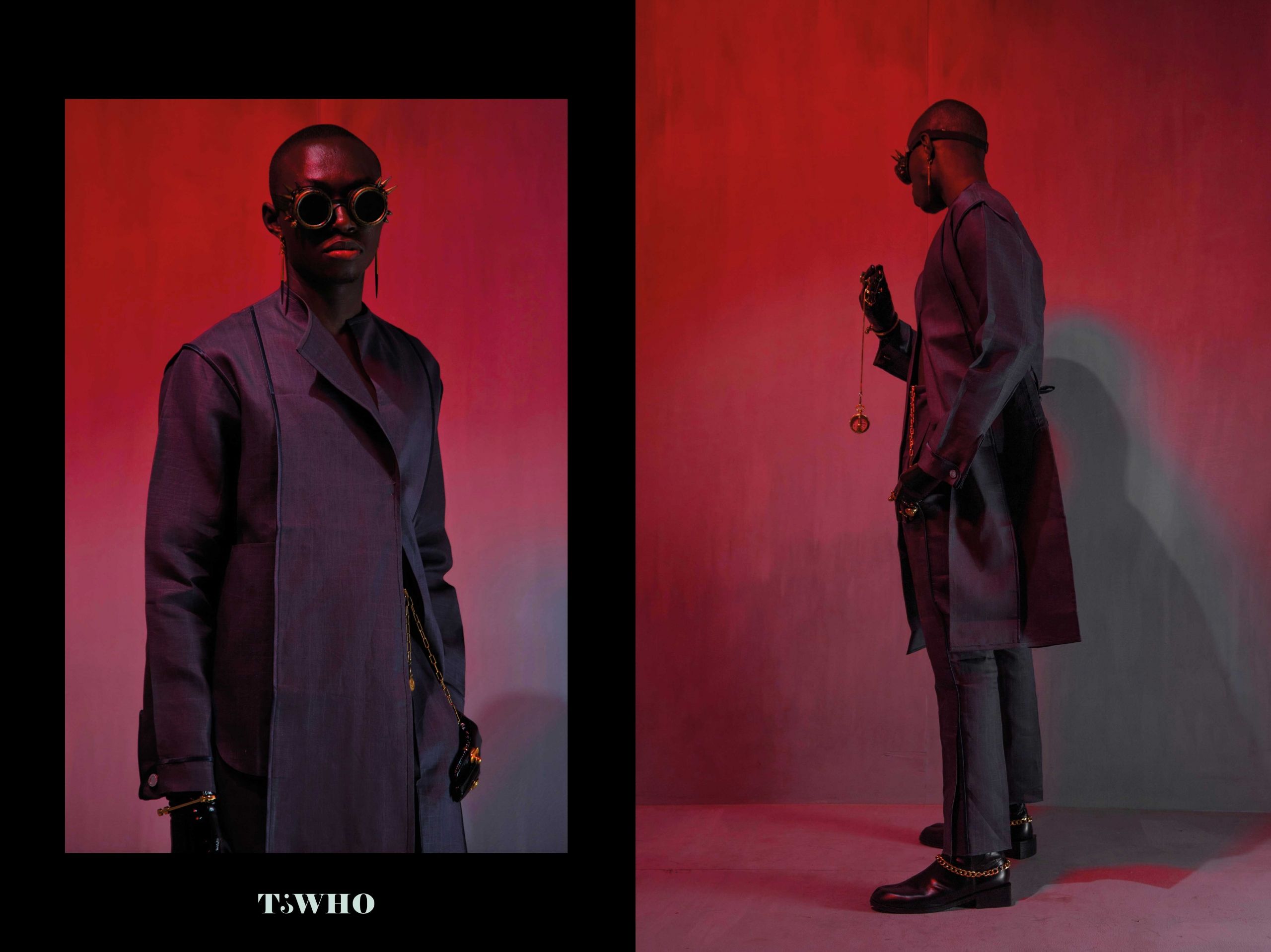
Lee Nxumalo: You studied Architectural Technology at Nottingham Trent University in the UK – how did you end up in fashion?
Taju Ibrahim: I’ve always had a passion for design in general and I felt like architecture was a field where it was really hard to make a statement and to make a name [for yourself]. Fashion came more easily to me. It was just natural. Even when I was working in architecture, I was doing my fashion business on the side. I started my brand as a side business basically. You know, I just built it to a point where I decided one day to take this leap of faith. This is what I have a passion for and I have a unique voice when it comes to fashion. It’s easier to spread the design language through fashion than through architecture, in my opinion.
Lee Nxumalo: How did that learning environment help inspire you and shape your designs?
Taju Ibrahim: The School of Architecture and architecture, in general, is the bedrock of everything [related to] design that I do. There are certain design principles I learned while I was in school that have shaped me and helped me discover my design language. One of the main design principles I take from architecture is that form follows function and it means that the purpose of the building is what should be thought of first before the actual shape of the building. So those are the kinds of principles that have shaped my thinking [when it comes to fashion].
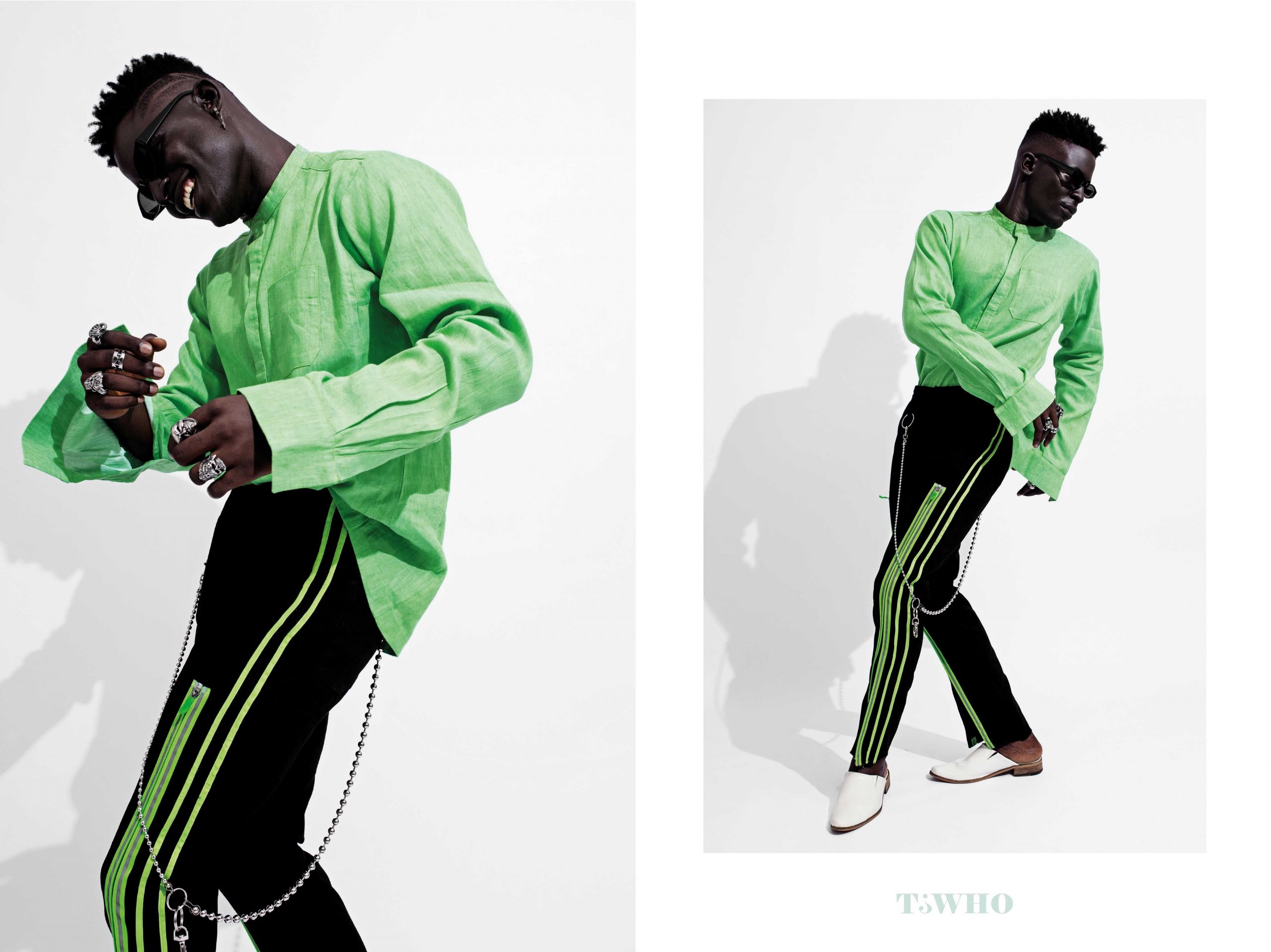
Lee Nxumalo: Tell me a little about your design process – how do you go about starting a new line?
Taju Ibrahim: Before research, there is the inspiration and it comes from a bunch of things. It could be from the current economic crisis or it could be something I discovered along my travels. It’s essentially inspiration and research. From the research, I sketch and then I do some textile study to see what works with the silhouettes that I’m composing. After the textile study, I do a sample and design with my tailors. We go back and forth and do mock-up tests. The testing and improving stage is very important for me because I’m practical. I wear the clothes daily to make sure that they actually work – to make sure that the buttons are not stretching out or pulling fabrics in the wrong places. After that, I revise any issues and improve the design.
Lee Nxumalo: Lastly, what is your perspective on Nigeria’s fashion industry?
Taju Ibrahim: I think we have a long way to go, especially in the backend of the business. Fashion businesses are seriously lacking. I think most people venture into fashion and just focus on the glamour aspect. They just focus on the end product or the social media content, lookbooks, and ad campaigns.
Those who really understand the business realise that structure is necessary […] to elevate the quality of the products that are being put out because people aren’t focusing on the finishing. There’s so much more to garment making than just shooting lookbooks. There needs to be intention and attention to detail, etc. And I feel like you know, if we look more into that we would even create more jobs in the fashion industry.
Answers have been shortened for clarity and brevity.

